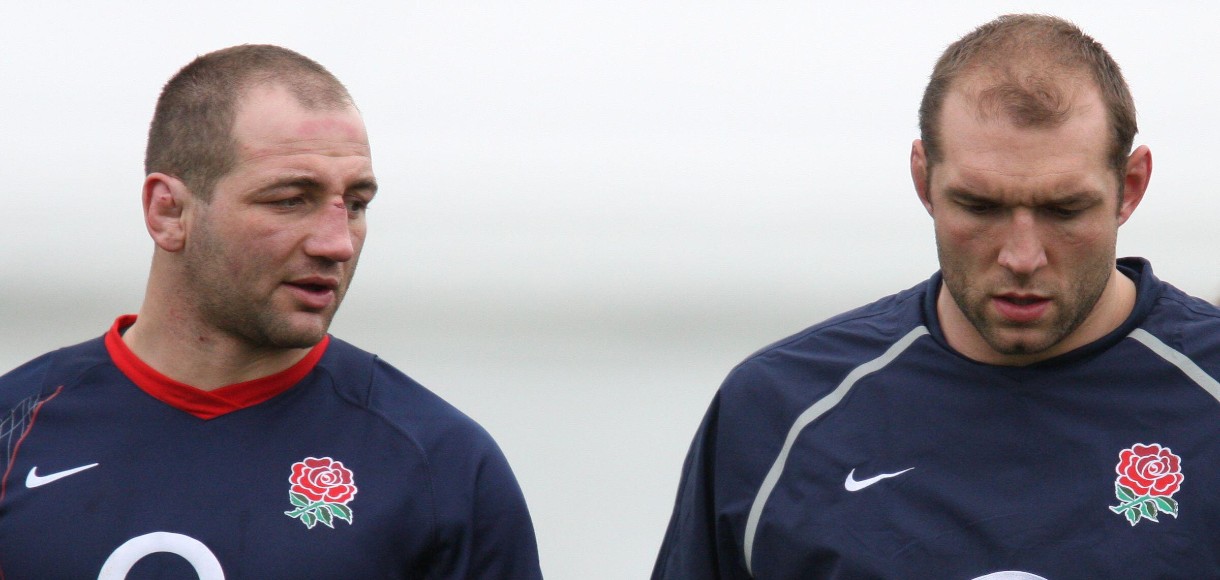Shane Williams on how to win the Six Nations

In an exclusive interview, the legendary winger discusses the unique challenges of the Six Nations and his two Grand Slam wins.
Shane Williams achieved more than most in the sport of rugby.
On an individual level, the legendary Welsh winger is his country’s record try scorer, sitting fourth on the all-time list, won IRB Player of the Year in 2008 – the only Welshman to achieve that feat – and was inducted into the World Rugby Hall of Fame.
With Wales, Williams was part of three World Cup squads, helping them reach the semi-finals in his final international tournament in 2011, and was a key member of two of the greatest teams the country has ever produced as they won the Six Nations Grand Slam in 2005 and 2008.
Every single one of these achievements is something to be proud of, but Williams looks back on those two Grand Slam wins with particular fondness.
“Winning the Grand Slam is one of my highest achievements,” he says, speaking exclusively to sports betting firm Betway. “In ’05, that Grand Slam came out of nowhere. We weren't expected to do particularly well in that Six Nations.
“We played tough rugby, we defended our hearts out. It was almost like a movie, winning that Six Nations, to be perfectly honest. That’s up there with the best of them.”
“Then 2008 was a great Six Nations for me personally, because it was when I probably played my best rugby for Wales. We won the Grand Slam, I won player of the tournament and then went on to win IRB World Player of the Year. That was a huge Six Nations for me, I absolutely loved it.
“Both of those rank in the top, top rugby achievements, I've got to be honest. It doesn't come around that often, so I'm very honoured to have done it twice.”
Williams was a part of many great Wales teams over the course of his 11-year international career, but there was something that set those two Grand Slam-winning squads apart from the rest.
“It was just self-belief,” he explains. “I played in Wales teams that probably hadn't given themselves enough credit, especially the players.
“We had some great players, but collectively at times we let ourselves down. Physically and skilfully, we were always up there with the best, it was just sometimes we didn't quite believe in ourselves.
“And I think that was the difference in those Grand Slams. We backed ourselves, we backed our physicality, we were mentally tough, and we had a strong enough squad to get us through the tournament unscathed, and that was the difference.”
As Williams alludes to, winning a Grand Slam is a serious achievement, and one that many world-class players end their careers without.
Since the tournament became the Six Nations with the introduction of Italy in 2000, a Grand Slam has been won in 11 of 22 years – Wales have four, France have three, while England and Ireland have two each.
“It’s extremely hard to win the Grand Slam,” says Williams. “As people who watch the Six Nations know well, it's such a short turnaround, it’s only five games, you’re only playing five different teams. Surely it’s not difficult to win every game? I can assure you it is.
“You've really got to be on top of your game for the full tournament. The level of competition is so tight. One mistake in any international match and you lose the match, and then obviously your chance at a Grand Slam is over.
“You’re playing against some of the best teams in the world, some of the best players in the world. You’ve got to have a bit of luck along the way, you’ve got to make sure you don't get any injuries, your discipline has to be on point.”
Not only is the Grand Slam a tough ask, but the Six Nations as a tournament is a gruelling few weeks that throws up some unique challenges.
“It’s how quick the tournament is upon you,” says Williams. “You're playing against the best players in Europe, some of the best teams in the world, so if you switch off or your form dips at all, you get found out very, very quickly.
“The other thing with the Six Nations is if you pick up any niggles in training, or you're injured, or if something isn't quite right, in the blink of an eye, you’re two or three games in and the competition is over.
“It’s a fast and furious tournament and you know that any team could win it. There's never an out-and-out favourite.”
Competition has been particularly tight in recent years, with no champion able to defend their title over the last four years.
In the 22-year history of the tournament, just five teams have managed to win back-to-back Six Nations.
Ultimately, there are several teams every year with the quality to top the table, so you need a bit of luck on your side as well.
“You need a massive amount of luck to win the Six Nations,” says Williams. “Just little decisions, a referee perhaps being a bit lenient on a decision, a referee getting it wrong, the luck of a bounce, or a mistake made by the opposition.
“Even players getting injured when you're meant to be playing against them. Anything, any kind of decision like that, you take them all day long, whether it's to the detriment of another team or it benefits you.
“Sometimes you find that you get on the referee’s right side, and sometimes your team's annoying the ref, and the captain is not quite getting in his own way and decisions go against you. The problem is, when these decisions don't go your way, it's almost a snowball effect.
“You start to lose discipline, other players in your team that lose discipline. All these factors count, they really do.
“It's all about doing whatever it takes to win.”




































